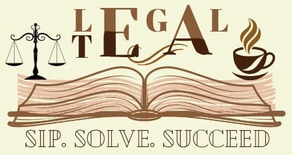The Doctrine of Indoor Management: Shielding Outsiders in Corporate Dealings
The doctrine of indoor management serves as a fundamental principle in corporate law, offering essential protection for individuals and organizations engaged with companies. It maintains the principle of constructive notice, ensuring that while the internal rules of a company are accessible to the public, outsiders are not excessively burdened to verify compliance with every internal procedure. This principle reinforces confidence in business dealings and promotes smooth operations within organizations.
Sarita kumari, 3rd Year BA. LLB(Hons.)
4/21/20253 min read


Origin and Evolution
The doctrine was first established in the significant English case of royal british bank v. Turquand (1856). In this scenario, the company's directors issued a bond without obtaining the necessary approval as required by the company's internal rules. The court determined that the plaintiff, who was not a part of the organization, had the right to assume that the internal procedures had been properly executed. This decision laid the groundwork for the turquand rule or the doctrine of indoor management, which became widely recognized.
Meaning and Scope
The doctrine of indoor management is an exception to the doctrine of constructive notice, which assumes that individuals involved with a company are already aware of its public documents, such as its memorandum and articles of association. Nevertheless, this rule does not apply to the internal operations of the company, which are not open to the public.
Essentially, the doctrine safeguards innocent third parties who engage in transactions with a company, enabling them to reasonably assume that the company has followed its internal rules and formalities.
Key Judicial Pronouncements in India:
1. Official Liquidator v. Kamal Deep Ltd. (2008) –The Delhi High Court reaffirmed the principle, stating that an outsider is entitled to assume that acts performed by the officers of the company are within their authority.
2. Anand Bihari Lal v. Dinshaw & Co. (Bankers) Ltd. (1942) –In this instance, the court determined that the plaintiff could not invoke the doctrine when the transaction was clearly beyond the company's authorized scope.
3. Lakshmi Ratan Cotton Mills Co. Ltd. v. J.K. Jute Mills Co. Ltd. (1957) – The court sided with the plaintiff who had acted in good faith, emphasizing the protective nature of the doctrine for third parties.
Exceptions to the Doctrine:
Similar to other legal principles, the doctrine of indoor management is not without limitations. Courts have established several exemptions:
1. Understanding the internal inconsistencies: If the outsider is aware of the internal flaws, they cannot rely on this doctrine for protection.
2. Suspicion of Irregularity: if circumstances are such that a reasonable person would question further, then the doctrine cannot be used.
3. Forgery: The doctrine does not apply to transactions involving forged documents, as forgery is considered invalid in legal terms.
4. Acts Outside Apparent Authority: If a person acts beyond what is expected or understood, the doctrine cannot be used to justify those actions.
Relevance in Modern Corporate Law
In the current fast-paced commercial world, the doctrine remains highly significant. In the beginning very first, there was support to the propositions made by corporate officers that their statements could be relied upon by an outsider party without going into technicalities. This presumption would become extremely relevant to large corporations when not verifying internal compliance would bring the whole company's activities to a standstill.
The doctrine gets much more relevance as there is an ongoing trend toward the electronic recording of corporate documents and transactions. Corporate documents today can be made readily available but there keeps a shroud of mystery on the internal decision processes by which those documents were generated. The doctrine of corporate decision making is thus a very important element in transactional security.
Conclusion
Thus, the doctrine of indoor management is a practical balance between bringing corporate transparency and a trust in transactions. It does not make innocent third parties suffer the internal errors of a company. Thus, it creates an environment conducive to business as well as smooth activities in a corporate business. It is thus an important instrument in the wider context of governance in corporations.
References:
1. Royal British Bank v. Turquand, (1856) 6 E. & B. 327, 119 Eng. Rep. 886 (QB).
2. Official Liquidator v. Kamal Deep Ltd., (2008) 144 Comp Cas 68 (Del).
3. Anand Bihari Lal v. Dinshaw & Co. (Bankers) Ltd., AIR 1942 Oudh 417.
4. Lakshmi Ratan Cotton Mills Co. Ltd. v. J.K. Jute Mills Co. Ltd., AIR 1957 All 311.
5. AVTAR SINGH, Company Law 234–239 (17th ed. 2016, EBC Publishing).
6. GOWER & DAVIES, Principles of Modern Company Law 152–160 (10th ed. 2016, Sweet & Maxwell).
7. G.K. KAPOOR & SANJAY DHAMIJA, Company Law and Practice 301–308 (24th ed. 2023, Taxmann Publications).
Because Every Legal Mind Deserves a Great Conversation.
Legaltea.in@gmail.com
+91 6284295492
MSME Certified
© 2025 Legal Tea. All rights reserved.


